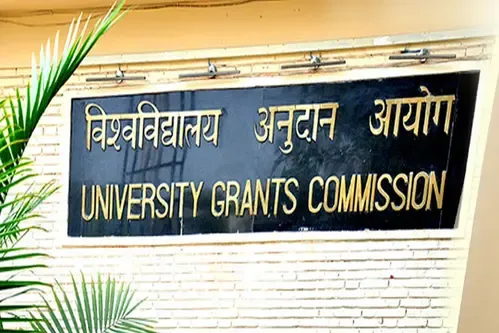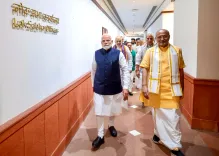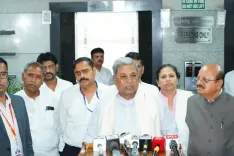UGC Updates Criteria for Faculty Appointments

New Delhi, Jan 6 (NationPress) The UGC has sanctioned a draft named Minimum Qualifications for Appointment of Teachers and Academic Staff in Universities and Colleges and Measures for the Maintenance of Standards in Higher Education Regulations, 2025.
On Monday, Union Education Minister Dharmendra Pradhan introduced the draft guidelines. These guidelines are presently accessible on the UGC website for feedback and suggestions.
The updated regulations modify the selection procedure for vice-chancellors by broadening eligibility to include professionals from various fields such as academia, research institutions, public policy, public administration, and industry. They also stipulate clear directives regarding the composition of the VC's search-cum-selection committee, including tenure, age limitations, eligibility for reappointment, and the authority to form the search-cum-selection committee. These new regulations will be applicable to Central, State, Private, and Deemed Universities.
UGC Chairman M. Jagadesh Kumar informed IANS, “The 2025 UGC regulations aspire to revolutionize the recruitment and promotion processes for faculty members in Indian higher educational institutions by introducing alterations that promote flexibility, inclusivity, and excellence in faculty recruitment and career advancement. For instance, individuals can qualify for faculty roles based on their performance in a subject of their choice in UGC-NET, even if their undergraduate and postgraduate credentials are in differing disciplines. Additionally, the subject of the Ph.D. degree takes precedence over the disciplines studied in undergraduate and postgraduate programs during faculty selections. This flexibility is vital to dismantling rigid subject boundaries and facilitating faculty candidates' transitions across disciplines, fostering a more multi-disciplinary ecosystem on university campuses as envisioned in NEP 2020.”
The focus on Indian languages in publishing books, chapters, and academic qualifications is a significant attribute of the 2024 regulations, aligning with NEP 2020's aim of promoting Indian languages in higher education, Kumar added.
As per the UGC, the Academic Performance Indicator (API) system in the 2018 regulations heavily depended on quantitative metrics, oversimplifying academic performance to numerical scores. In the previous framework, candidates were largely evaluated based on numerical criteria, such as journal or conference publication tallies.
The 2025 regulations eliminate the API-based shortlisting method and adopt a more qualitative strategy, enabling selection committees to evaluate candidates holistically based on their significant contributions and broader academic influence in areas such as innovation in teaching techniques, technology advancement, entrepreneurial initiatives, authoring books, developing digital learning resources, community engagement, societal contributions, promoting Indian languages and knowledge systems, and sustainability practices, as well as supervising internships and projects or launching successful startups. These regulations further facilitate the selection of faculty from diverse backgrounds. The main objective of these regulations is to expand the opportunities and freedom available so faculty members can excel in their areas of passion.
The UGC believes that these regulations introduce specialized recruitment pathways to attract top talent in fields such as Yoga, Music, Performing Arts, Visual Arts, Sculpture, and Drama. These pathways acknowledge professional achievements and national or international recognitions. This flexibility ensures that practitioners with exceptional talents in these traditional art forms can contribute to academia, thereby preserving India's cultural heritage. Recognizing the importance of physical education and sports, the new regulations provide accomplished sportspersons with opportunities to enter the teaching profession.






